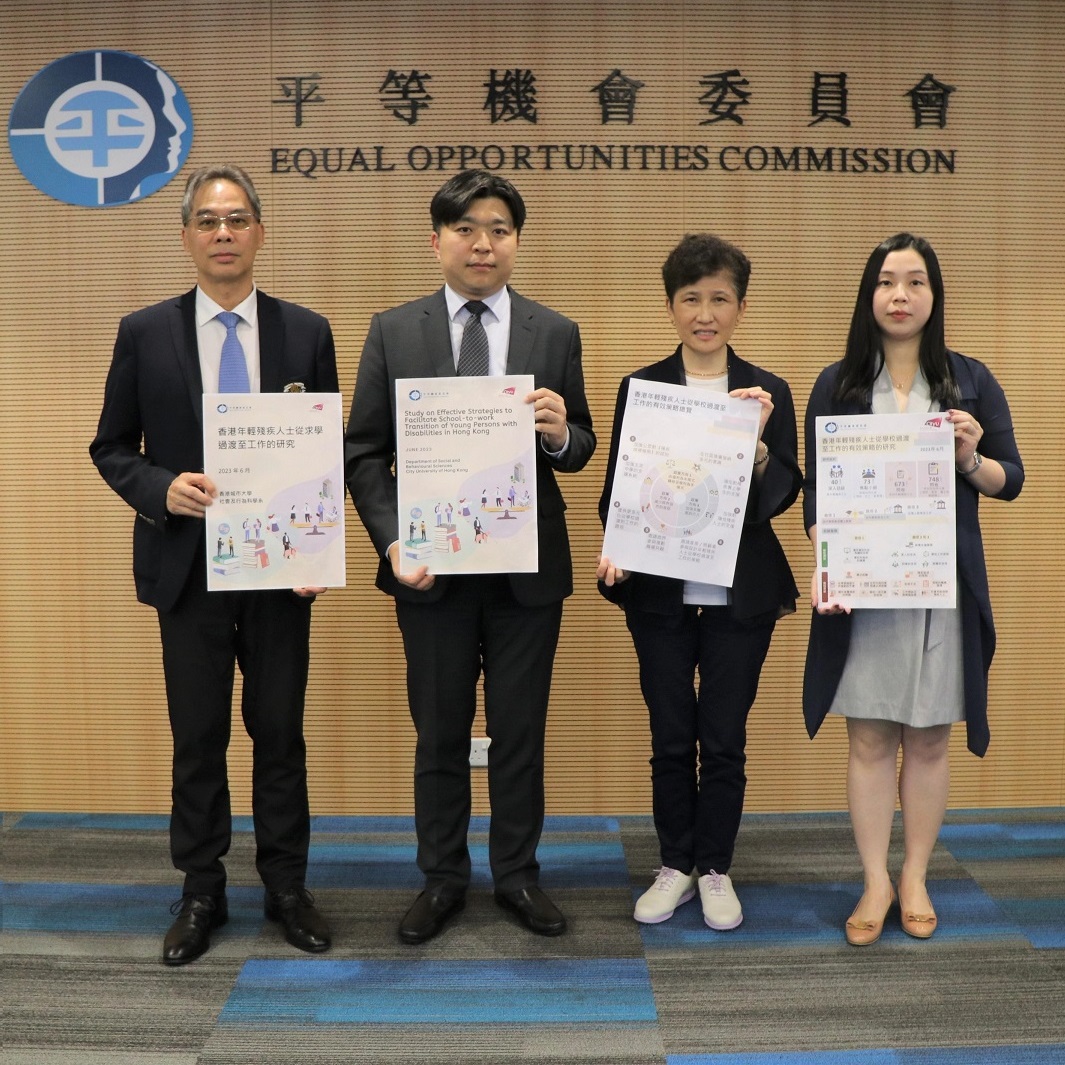
Young persons with disabilities face obstacle in school-to-work transition, EOC study reveals
On 5 June 2023, the EOC released the findings of the “Study on Effective Strategies to Facilitate School-to-Work Transition of Young Persons with Disabilities (PWDs) in Hong Kong”, which showed that young PWDs, with or without post-secondary educational attainment, encountered significant obstacles in transitioning from school to work.
Commissioned to the Department of Social and Behavioural Sciences of The City University of Hong Kong, the study found that many young PWDs believed that they were unlikely to be considered suitable candidates in the eyes of employers due to their disabilities. If they were hired, they would require more time to adapt to the work environment.
The study encompassed surveys and in-depth interviews with young PWDs, as well as surveys and focus groups with key stakeholders, including teachers/instructors, parents/carers, social workers/counsellors/social service practitioners, employers and employees.
According to a survey conducted among 673 young PWDs, around one-third of the sampled young PWDs who were in the labour market considered their employers had misunderstood their disabilities and assigned tasks that were too simple for them, while about one-third of them were assigned tasks that were too difficult.
While the majority (85.1%) of the employers were willing to hire PWDs with post-secondary qualifications, more than half were concerned about the cost of barrier-free facilities/accommodation and feared not being able to discipline employees with disabilities because of potential lawsuits.
The research team proposed three policy directions to facilitate the school-to-work transition of young PWDs, including shifting from a welfare- to a rights-based approach, bridging gaps in cross-sector collaboration and enhancing multi-level interventions. It is hoped that the collective effort from the community can help remove social labelling and discrimination against PWDs and unleash the potential of young PWDs.

